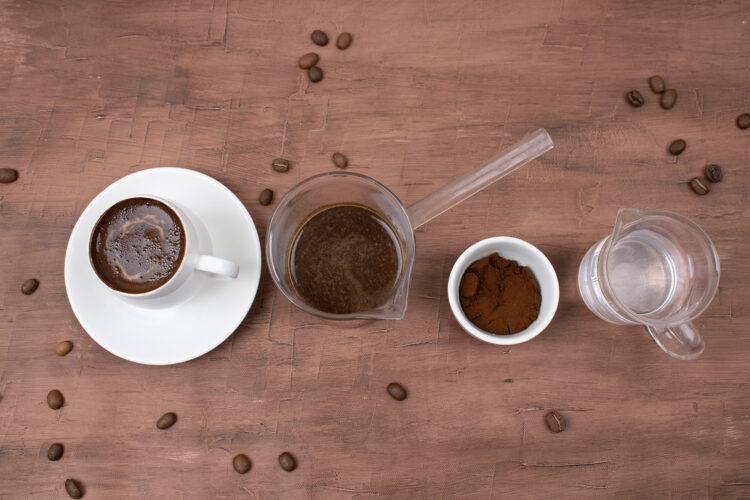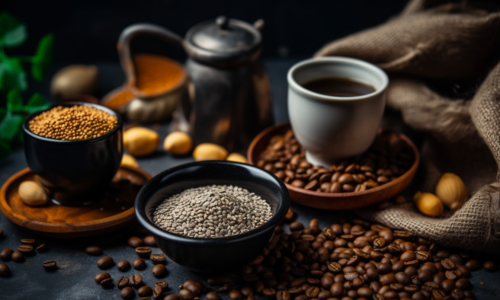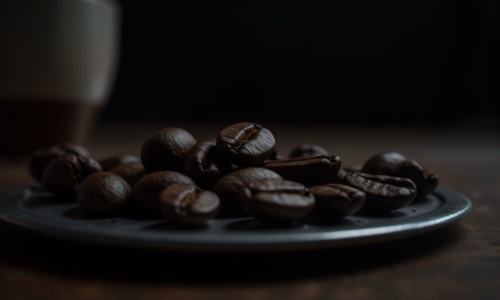Learn various techniques to reduce caffeine in your Turkish coffee while preserving its rich, authentic flavor. Enjoy a low-caffeine beverage without compromising taste.
The Love for Turkish Coffee
We all love a good cup of Turkish coffee. It’s aromatic, full-bodied, and its unique preparation method is steeped in history and tradition. However, the downside is that Turkish coffee has relatively high caffeine content. For those who are sensitive to caffeine or wish to reduce their intake, we have good news! There are ways to enjoy this delicious beverage without experiencing the jitters or sleep disruptions that caffeine can cause. In this article, we will explore various techniques to reduce caffeine in your Turkish coffee, without compromising on flavor.
Choose a Low-Caffeine Coffee Bean
Arabica vs. Robusta
When it comes to coffee beans, there are two primary types: Arabica and Robusta. Arabica beans are generally more expensive and have a milder flavor, while Robusta beans are cheaper, stronger, and have a higher caffeine content. To reduce the caffeine in your Turkish coffee, opt for Arabica beans. This will give you a more delicate flavor profile and lower caffeine levels.
Light vs. Dark Roast
Another factor to consider when selecting coffee beans is the roast level. Light roasts tend to have higher caffeine content than dark roasts, even though the flavor may be milder. Opting for a medium or dark roast Arabica bean will further reduce the caffeine in your Turkish coffee.
Modify Your Brewing Method
Use Less Coffee
One straightforward way to decrease the caffeine in your Turkish coffee is to use less coffee grounds. Experiment with using slightly less coffee per serving, and see how it affects the taste. You might find that you enjoy a lighter cup of coffee with less caffeine.
Experiment with Brewing Time
The longer coffee brews, the more caffeine is extracted. By shortening the brewing time, you can reduce the amount of caffeine in your Turkish coffee. Keep in mind that this may also result in a lighter flavor, so you may need to adjust the amount of coffee grounds to achieve the desired taste.
Try Alternative Brewing Techniques
Cold Brew Turkish Coffee
Cold brewing coffee is known to extract less caffeine compared to hot brewing methods. To make cold brew Turkish coffee, simply mix your coffee grounds with cold water, and let it steep in the refrigerator for 12-24 hours. Then, strain the coffee grounds and enjoy your low-caffeine beverage.
Decaf Turkish Coffee
Decaffeinated coffee is another option for those who want to enjoy Turkish coffee without the caffeine. There are various methods of decaffeinating coffee beans, with the Swiss Water Process being one of the most popular. This process uses water and activated charcoal to remove caffeine from the beans, resulting in a delicious, low-caffeine coffee.
Combine Techniques for Best Results
You can combine several of the above techniques to further reduce caffeine in your Turkish coffee. For example, you can use a medium or dark roast Arabica bean, brew it for a shorter time, and use less coffee grounds. Experiment with different combinations to find the perfect balance of flavor and caffeine for your taste buds.
Other Tips to Reduce Caffeine Intake
Drink Water
Remember to drink water alongside your coffee to help balance out the effects of caffeine. Staying hydrated can prevent some of the side effects of caffeine, such as dehydration and increased heart rate.
Limit Your Consumption
Moderation is key when it comes to caffeine consumption. Aim to limit yourself to one or two cups of Turkish coffee per day to keep your caffeine intake in check.
Reducing the caffeine in your Turkish coffee doesn’t have to mean sacrificing taste or tradition. By choosing low-caffeine beans, adjusting your brewing method, and trying alternative techniques, you can continue to enjoy this rich, flavorful beverage without the negative effects of too much caffeine. Remember to practice moderation and stay hydrated to fully appreciate the delightful experience of Turkish coffee.
FAQs
Q1. Can I still enjoy the traditional flavor of Turkish coffee if I reduce the caffeine content?
A1. Yes, you can still enjoy the authentic taste of Turkish coffee by carefully selecting low-caffeine beans and adjusting your brewing method. Experiment with different techniques to find the perfect balance between flavor and caffeine content.
Q2. Is it possible to make Turkish coffee with decaf coffee beans?
A2. Absolutely! Decaf coffee beans can be used to prepare Turkish coffee, offering you a low-caffeine alternative. Look for decaf beans that have been processed using the Swiss Water Process for the best flavor.
Q3. How does the roast level of coffee beans affect caffeine content?
A3. The roast level can impact the caffeine content in coffee beans. Light roasts usually have higher caffeine levels, while medium and dark roasts have lower caffeine content. Opting for a medium or dark roast Arabica bean will help reduce caffeine in your Turkish coffee.
Q4. How does brewing time affect the caffeine content of Turkish coffee?
A4. The longer coffee is brewed, the more caffeine is extracted. By reducing the brewing time, you can decrease the amount of caffeine in your Turkish coffee. Keep in mind that shorter brewing times may also result in a lighter flavor, so you may need to adjust the amount of coffee grounds accordingly.
Q5. Are there any other tips for reducing caffeine intake while enjoying Turkish coffee?
A5. Yes, some other tips include drinking water alongside your coffee to help balance the effects of caffeine and limiting your consumption to one or two cups per day to keep your caffeine intake in check.




As someone who loves Turkish coffee but can’t handle too much caffeine, these tips are really helpful. I never thought of using decaf beans or adding spices to reduce the caffeine. Thanks for the great advice!